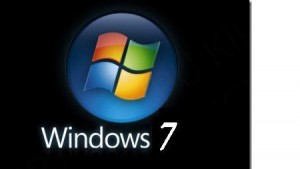
Software titan Microsoft might take a shot to the chin every once in a while, but there doesn’t seem to be any denying the company can generate a bunch of money: Microsoft has released financial results for its second fiscal quarter of 2010, posting record revenue of $19.02 billion and a net profit of $6.7 billion. That figure represents a 60 percent improvement over the same quarter last year, when Microsoft pulled in a mere $4.2 billion. And, according to the company, a good portion of the credit goes to strong sales of its Windows 7 operating system.
“Exceptional demand for Windows 7 led to the positive top-line growth for the company,” said Microsoft CFO Peter Klein, in a statement. “Our continuing commitment to managing costs allowed us to drive earnings performance ahead of the revenue growth.”
The numbers are slightly misleading since they include $1.71 billion in deferred revenue from the Windows 7 Upgrade Option program and pre-sales of WIndows 7 to computer makers and retailers before the operating system officially went on sale. Without that boost, Microsoft’s year-on-year profit improvement would only have been 18.8 percent…which would still be noteworthy.
Microsoft has repeatedly noted that Windows 7 has been a top-seller for the company, following the lukewarm reception granted to Windows Vista. Overall PC sales also increased by 15.2 percent during the last financial quarter, and the vast majority of those PCs shipped with Windows 7 pre-installed. Windows 7 sales have also been buoyed by consumer interest in inexpensive notebook and netbook computers; however, the software giant did see a small drop in its office and business software offerings as businesses and enterprises continue to operate with tight belts…and some forestall purchases of Microsoft Office in anticipation of a new version in mid-2010.
Editors' Recommendations
- Scores of people are downgrading back to Windows 10
- Microsoft finally kills this legacy Windows app — for good this time
- The next big Windows 11 update has a new hardware requirement
- Windows 11 Home usually costs $139 — but it’s only $30 today
- How to disable VBS in Windows 11 to improve gaming


